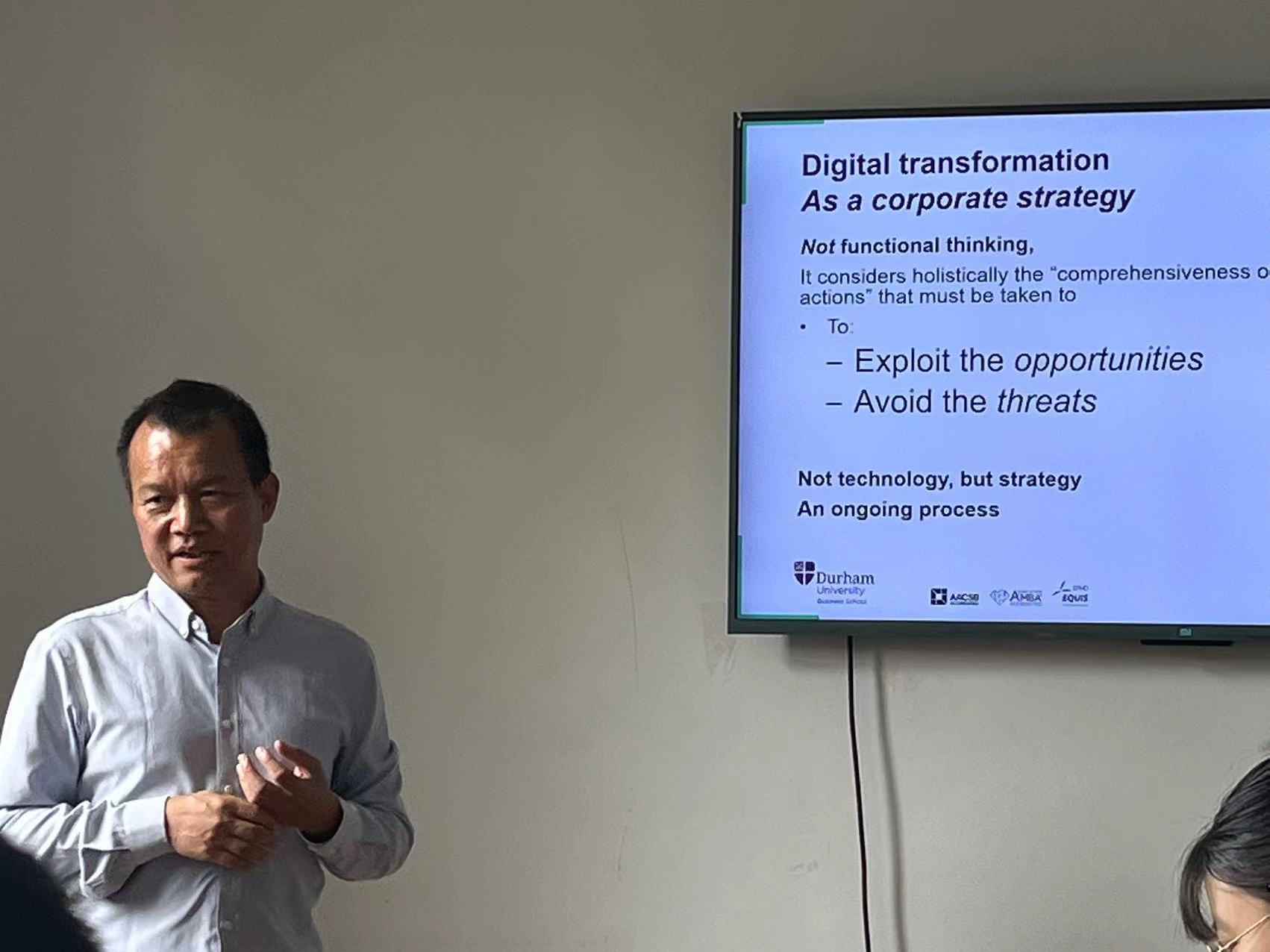On the morning of April 26, the 120th Session of Chen Daisun Theoretical Economics Lecture, organized by the Institute of Economics of the School of Social Sciences of Tsinghua University was held at Meeting Room 221 inside Mingzhai. Lin Zhibin, Professor & Ph.D. Supervisor at Durham University Business School & Director of the Centre for Consumers and Sustainable Consumption, gave an academic lecture entitled "Strategic Impact of Intergenerational Succession on Digital Transformation". Professors Long Denggao and Rong Ke, Associate Professor Li Hongjun, Assistant Professor Xu Zhihao and Emeritus Professor Gao Shujuan as well as more than 20 students from the Institute of Economics attended the lecture and had heated discussions. Prof. Rong Ke from the Institute of Economics presided over the lecture and discussions.

Lin Zhibin Speech
By focusing on intergenerational succession, Lin Zhibin raised the question of whether the factor has a positive or negative impact on digital transformation, which was then explored. Prof. Lin analyzed in depth the underlying logic of decision-making by family businesses facing digital transformation, and examined digital transformation from an entrepreneur's perspective. Lin's team explored the impact of intergenerational succession on digital transformation of family businesses based on the behavioral agency theory (BAT). The team's research reveals a negative impact of intergenerational succession on the adoption and implementation of digital transformation strategies in family businesses, and a moderating effect of factors such as family ownership concentration, Confucian cultural values, and successor's education level, science/engineering background and childhood entrepreneurial experiences. An analysis of the sample data of the enterprises listed on China's A-share market from 2011 to 2020 shows that intergenerational succession does have a significant negative impact on digital transformation, and that the relevant moderating factors increase or reduce such impact to some extent.
The participants had discussions on issues such as the characteristics of intergenerational succession, measurement of digital transformation, cases of local intergenerational succession, and history-specific and region-specific intergenerational succession in Chinese enterprises